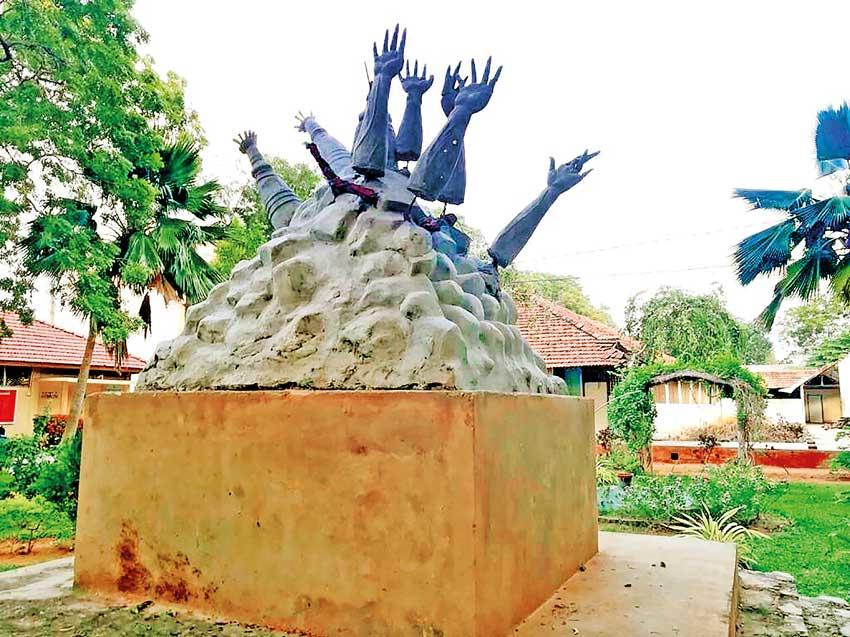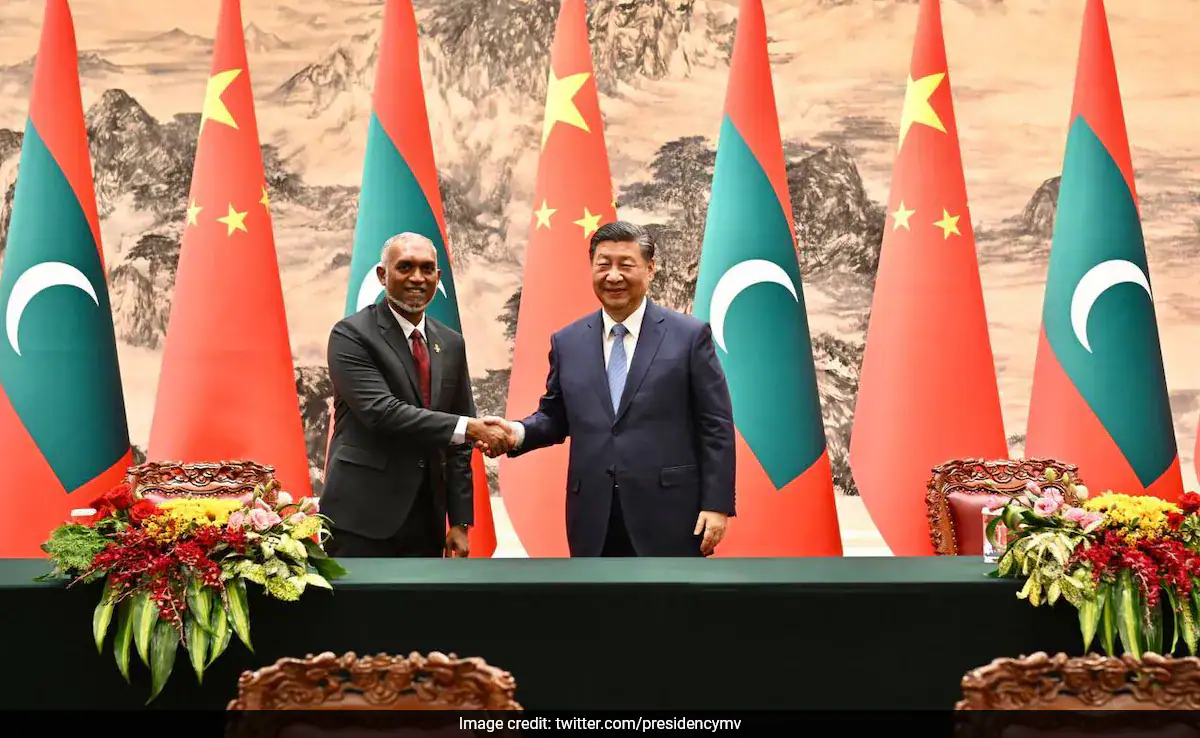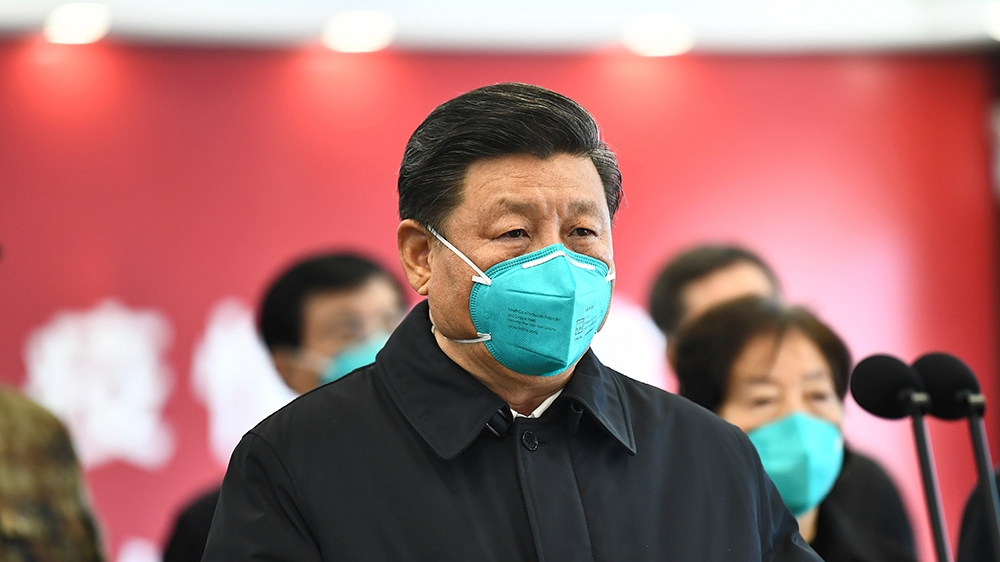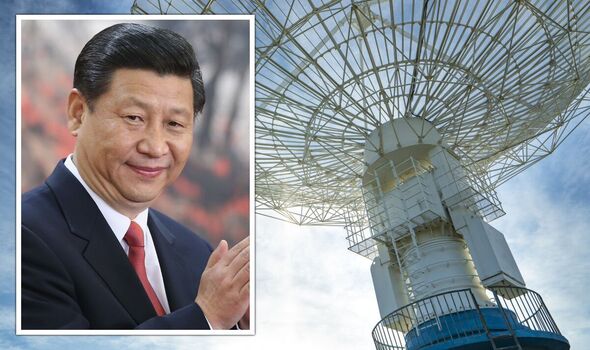The monument erected at the University of Jaffna in memory of the people who lost their lives during the last war was removed by the university administration on the 8th of January 2021. A bulldozer was used to demolish it at night on the orders of the university’s vice-chancellor Srisatkunarajah. He initially said that the university administration had decided to remove the monument as it was an illegal construction.
But the government of Sri Lanka had declared that they had nothing to do with this decision of the university. Army Chief Shavendra Silva also declared that they had nothing to do with this. As such, the government must assert its responsibility in such a matter and an inquiry should be held to find out the truth.
The matter has now come to an end following continuous protests by students. That is, the university vice-chancellor — who ordered the demolition — has announced that he will re-establish the monument with legal permission. A foundation stone has now been laid to this effect. If legal permission is the issue, the existing monument could have been legally secured without running it over with a bulldozer. There is no need to lay the foundation again after such demolition. Meanwhile, the Chairman of the University Grants Commission, Senior Professor Sampath Amaratunge, commented that the monument erected at the University of Jaffna was an obstruction to reconciliation. But the Vice-Chancellor of the University of Jaffna did not say so.
The matter has been calmed down by the same person who ordered the demolition of the monument. But the political repercussions of this are far-reaching. Recently, Indian External Affairs Minister S. Jaishankar paid a three-day official visit to Colombo. During the visit, he met and spoke with various quarters that included the head of state and leaders of the Tamil National Alliance. Jaishankar stressed the need to find a political solution based on the 13th Amendment that would treat the Tamil people with dignity. This would not have pleased the South for sure. Jaishankar has reiterated India’s commitment to the 13th Amendment, as voices have been growing in Sri Lanka’s south calling for the repeal of the 13th Amendment. At the same time, India has expressed concern over the development of the North-East.
The destruction of the memorial took place shortly after Jaishankar concluded his visit. This destruction has caused repercussions in Tamil Nadu as well. With the incident becoming a major topic of discussion in the run-up to the Tamil Nadu elections. Since the end of the war in May 2009, this is the first time that an issue across the straits has become much talked about within Tamil Nadu beyond party colours. The memorial issue is now occupying the Tamil Nadu electoral arena as the ruling BJP seeks to increase its influence in Tamil Nadu. The pro-Eelam parties in Tamil Nadu are campaigning on the basis that the destruction of the memorial is Colombo’s retaliation to Jaishankar’s call for implementation of the 13th Amendment.
This certainly has caused a crisis for the ruling BJP. At the same time, the comments made by the Vice-Chancellor of the Jaffna University is embarrassing. There is a video clip of him circulating https://www.youtube.com/watch?v=XpSDQSre9h8 , in which he states that R. Sampanthan had gone to the Indian High Commission in Colombo because there were problems in Tamil Nadu. This gives a strategic importance to the memorial issue. If the problem with the university is that the memorial is actually installed outside the law, then the vice-chancellor need not worry about India and Tamil Nadu’s politicians. Sri Lanka is a sovereign country. Therefore, a decision that can be taken within the legal framework of Sri Lanka need not be linked to India and Tamil Nadu.
It is also important to know who will benefit the most from what the vice-chancellor is openly saying. Following Jaishankar’s visit, allegations among Sinhala nationalists are rife with Indian interference in Sri Lanka’s internal affairs. Against this backdrop, the problem is emerging in India. So it needs to be rebuilt, the vice-chancellor said. This in turn indirectly instigates the Indian opposition in Sri Lanka. Apart from that, the vice chancellor’s claim is also a source of fear in relation to Tamil Nadu. Sinhala-Buddhist nationalists understand the Tamil issue in Sri Lanka in conjunction with Tamil Nadu. Consequently, they see the problem of the Tamil people as part of the Indian expansionist agenda.
In such a context, the destruction of the memorial can be seen as a ploy to strengthen opposition to India in Sri Lanka’s south. On the surface, only the ruins of a monument erected at the University of Jaffna can be seen. But Sri Lanka, Tamil Nadu, and India are the three issues associated with it. In this sense, the monument issue acquires strategic significance. It seems likely that this will have an impact on Sri Lanka-China-India relations in the years to come.




